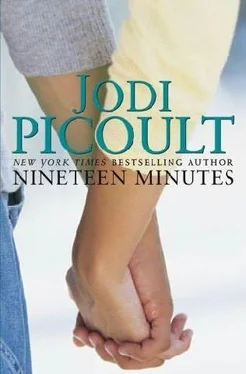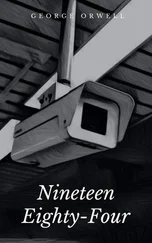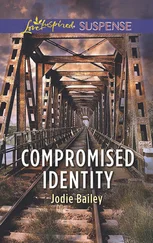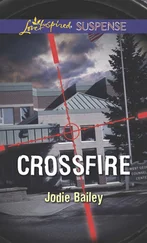She took another sip of her coffee and tiptoed from her bedroom to Josie’s. But the door stood wide open, and her daughter was not inside.
“Josie?” Alex called, panicking. “Josie, are you all right?”
“Down here,” Josie said, and Alex felt the knot inside her unravel again. She walked downstairs to find Josie sitting at the kitchen table.
She was dressed in a skirt and tights and a black sweater. Her hair was still damp from a shower, and she had tried to cover the bandage on her forehead with a swath of bangs. She looked up at Alex. “Do I look all right?”
“For what?” Alex asked, dumbfounded. She couldn’t be expecting to go to school, could she? The doctors had told Alex that Josie might never remember the shooting, but could she erase the fact that it had ever happened from her mind, too?
“The arraignment,” Josie said.
“Sweetheart, there is no way you’re going near that courthouse today.”
“I have to.”
“You’re not going,” Alex said flatly.
Josie looked as if she were unraveling at the seams. “Why not?”
Alex opened her mouth to answer, but couldn’t. This wasn’t logic; it was gut instinct: she didn’t want her daughter to relive this experience. “Because I said so,” she finally replied.
“That’s not an answer,” Josie accused.
“I know what the media will do if they see you at the courthouse today,” Alex said. “I know that nothing’s going to happen at that arraignment that’s going to be a surprise to anyone. And I know that I don’t want to let you out of my sight right now.”
“Then come with me.”
Alex shook her head. “I can’t, Josie,” she said softly. “This is going to be my case.” She watched Josie pale, and realized that until that moment, Josie hadn’t considered this. The trial, by default, would put an even thicker wall between them. As a judge, there would be information she couldn’t share with her daughter, confidences she couldn’t keep. While Josie was struggling to move past this tragedy, Alex would be knee-deep in it. Why had she put so much thought into judging this case, and so little into how it would affect her own daughter? Josie didn’t give a damn if her mother was a fair judge right now. She only wanted-needed-a mother, and motherhood, unlike the law, was something that had never come easily to Alex.
Out of the blue, she thought of Lacy Houghton-a mother who was in a whole different level of hell right now-who would have simply taken Josie’s hand and sat with her and somehow made it seem sympathetic, instead of contrived. But Alex, who had never been the June Cleaver type, had to reach back years to find some moment of connection, something she and Josie had done once before that might work again now to hold them together. “Why don’t you go upstairs and change, and we’ll make pancakes. You used to like that.”
“Yeah, when I was five…”
“Chocolate chip cookies, then.”
Josie blinked at Alex. “Are you on crack?”
Alex sounded ridiculous even to herself, but she was desperate to show Josie that she could and would take care of her, and that her job came second. She stood up, opening cabinets until she found a Scrabble game. “Well, then, how about this?” Alex said, holding out the box. “I bet you can’t beat me.”
Josie pushed past her. “You win,” she said woodenly, and then she walked away.
The student who was being interviewed by the CBS affiliate out of Nashua remembered Peter Houghton from a ninth-grade English class. “We had to write a story with a first-person narrator, and we could pick anyone,” the boy said. “Peter did the voice of John Hinckley. From the things he said, you think he’s looking out from hell, but then at the end you find out it’s heaven. It freaked out our teacher. She had the principal look at the paper and everything.” The boy hesitated, scratching his thumb along the seam of his jeans. “Peter told them it was poetic license, and an unreliable narrator-which we’d been studying, also.” He glanced up at the camera. “I think he got an A.”
At the traffic light, Patrick fell asleep. He dreamed that he was running through the halls of the school, hearing gunshots, but every time he turned a corner he found himself hovering in midair-the floor having vanished beneath his feet.
At a honk, he snapped alert.
He waved in apology to the car that pulled up alongside him to pass and drove to the state crime lab, where the ballistics tests had been given priority. Like Patrick, these techs had been working around the clock.
His favorite-and most trusted-technician was a woman named Selma Abernathy, a grandmother of four who knew more about cutting-edge technology than any technogeek. She looked up when Patrick came into the lab and raised a brow. “You’ve been napping,” she accused.
Patrick shook his head. “Scout’s honor.”
“You look too good for someone who’s exhausted.”
He grinned. “Selma, you’ve really got to get over your crush on me.”
She pushed her glasses up on her nose. “Honey, I’m smart enough to fall for someone who doesn’t make my life a pain in the ass. You want your results?”
Patrick followed her over to a table, on which were four guns: two pistols and two sawed-off shotguns. They were tagged: Gun A, Gun B-the two pistols; Gun C and Gun D-the shotguns. He recognized the pistols-they were the ones found in the locker room-one held by Peter Houghton, the other one a short distance away on the tile floor. “First I tested for latent prints,” Selma said, and she showed the results to Patrick. “Gun A had a print that matches your suspect. Guns C and D were clean. Gun B had a partial print on it that was inconclusive.”
Selma nodded to the rear of the laboratory, where enormous barrels of water were used for test-firing the guns. She would have test-fired each weapon into the water, Patrick knew. When a bullet was fired, it spun through the barrel of a gun, which caused striations on the metal. As a result, you could tell, by looking at a bullet, exactly which gun it had been fired from. This would help Patrick piece together Peter Houghton’s rampage: where he’d stopped to shoot, which weapon he’d used.
“Gun A was the one primarily used during the shooting, Guns C and D were left in the backpack retrieved at the crime scene. Which is actually a good thing, because they most likely would have done more damage. All of the bullets retrieved from the bodies of victims were fired from Gun A, the first pistol.”
Patrick wondered where Peter Houghton had gotten his armory. And at the same time, he realized that it wasn’t hard in Sterling to find someone who hunted or went target shooting at the site of an old dump in the woods.
“I know, from the gunpowder residue, that Gun B was fired. However, there hasn’t been a bullet recovered yet that confirms this.”
“They’re still processing-”
“Let me finish,” Selma said. “The other interesting thing about Gun B is that it jammed after that one discharge. When we examined it we found a double-feed of a bullet.”
Patrick crossed his arms. “There’s no print on the weapon?” he clarified.
“There’s an inconclusive print on the trigger…probably smudged when your suspect dropped it, but I can’t say that for certain.”
Patrick nodded and pointed to Gun A. “This is the one he dropped, when I drew down on him in the locker room. So, presumably, it’s the last one he fired.”
Selma lifted a bullet with a pair of tweezers. “You’re probably right. This was retrieved from Matthew Royston’s brain,” she said. “And the striations are consistent with a discharge from Gun A.”
The boy in the locker room, the one who’d been found with Josie Cormier.
Читать дальше












